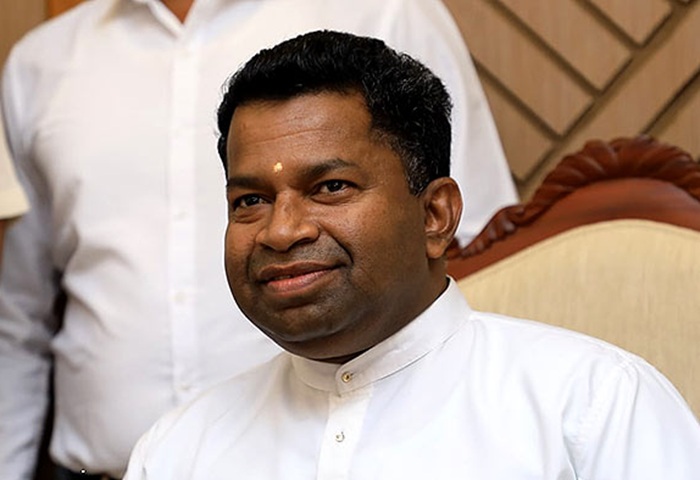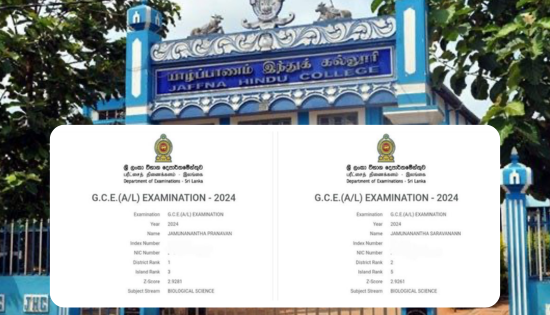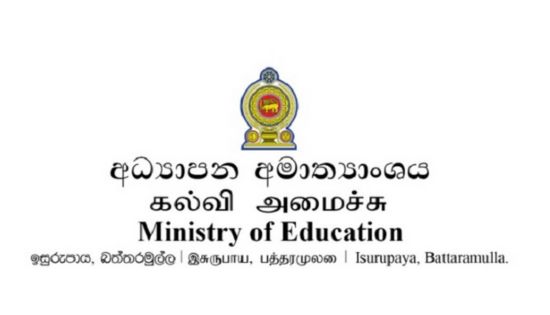Understanding Higher Education Levels: A Guide to Climbing the Academic Ladder
Higher education is a journey that allows individuals to gain knowledge, develop skills, and pursue career aspirations. The academic pathway includes several key levels: Foundation, Diploma, Advanced Diploma, Top-Up Degree, Bachelor’s Degree, Master’s Degree, PhD, and Professor. Each level offers unique opportunities, time durations, and recognition, shaping your professional future. Let’s explore each step, its validity, and how you can progress.

1. Foundation Program
A foundation program is the starting point for students who need to bridge gaps between their current qualifications and university entry requirements. This program typically lasts 6 months to 1 year. It focuses on essential academic skills, language proficiency, and subject knowledge.
- Who should choose this?
Students who have completed O/Ls (Ordinary Levels) or equivalent qualifications but do not meet the direct entry requirements for undergraduate studies. - Recognition & Validity:
Globally recognized by universities, it’s a stepping stone to further education.
2. Diploma
A diploma is a practical, skill-oriented qualification lasting 1 to 2 years. It focuses on specific fields such as business, IT, engineering, or hospitality.
- Who should choose this?
Students who have completed O/Ls or A/Ls (Advanced Levels) and wish to gain job-ready skills or continue to higher studies. - Recognition & Validity:
Diplomas are valid internationally and often lead to employment or advanced diploma programs.
3. Advanced Diploma
This is the next step after a diploma, offering more in-depth knowledge in a specialized field. It typically takes 1 to 2 years to complete.
- Who should choose this?
Those with a diploma who wish to enhance their qualifications or prepare for degree-level studies. - Recognition & Validity:
Widely accepted for jobs or as credit toward a bachelor’s degree in many universities.
4. Top-Up Degree
A top-up degree is for students with an advanced diploma or higher national diploma (HND). It usually lasts 1 year and allows you to earn a full bachelor’s degree.
- Who should choose this?
Students who already have significant credits from previous studies and want a recognized degree qualification. - Recognition & Validity:
Equivalent to a bachelor’s degree, recognized worldwide for employment and postgraduate studies.
5. Bachelor’s Degree
A bachelor’s degree is the cornerstone of higher education, typically requiring 3 to 4 years of full-time study. It combines theoretical knowledge and practical skills in areas such as medicine, engineering, arts, or sciences.
- Who should choose this?
Students who have completed A/Ls, a foundation program, or a top-up degree. - Recognition & Validity:
Globally recognized and essential for many careers and advanced studies like master’s programs.
6. Master’s Degree
A master’s degree is an advanced qualification focusing on specialized knowledge and research. It usually takes 1 to 2 years after completing a bachelor’s degree.
- Who should choose this?
Professionals or students aiming to deepen expertise in their field or enhance career prospects. - Recognition & Validity:
Highly regarded for senior roles in organizations and further academic pursuits like PhDs.
7. PhD (Doctor of Philosophy)
A PhD is the highest academic qualification, focusing on original research and contribution to knowledge. It typically takes 3 to 6 years to complete.
- Who should choose this?
Academics, researchers, or professionals wanting to specialize in a subject or pursue university teaching roles. - Recognition & Validity:
Universally acknowledged as a prestigious qualification.
8. Professor
Becoming a professor is not a formal academic level but a career milestone achieved after extensive teaching, research, and academic contributions. It often requires 10+ years of experience post-PhD.
- Who should aim for this?
Academics with a passion for teaching and research at the highest levels. - Recognition & Validity:
Professors are highly respected globally and often shape their respective fields of study.
The Right Path: Step-by-Step Progression
- Foundation → Diploma → Advanced Diploma → Top-Up Degree → Bachelor’s Degree
This path is ideal for students starting after O/Ls or A/Ls and ensures continuous progression. - Bachelor’s Degree → Master’s Degree → PhD → Professor
A direct pathway for those aiming to excel academically and professionally.
Popular Areas of Study
Based on online searches, students often explore fields like medicine, engineering, business, IT, and creative arts. Trending areas include artificial intelligence, cybersecurity, data science, and environmental science. These fields offer high employability and global demand.
Each qualification level builds a foundation for the next, ensuring growth and global opportunities. Choose your path wisely based on your interests, career goals, and financial capability. Remember, higher education is not just about gaining a degree; it’s about acquiring knowledge and skills that prepare you for life.
Related News
Plans underway to integrate vocational training at school level – PM
Minister of Vocational Education, Prime Minister Harini Amarasuriya, says adequate attention is not drawn towards vocational education, but moving forward, necessary action…
Read MoreBBA (Hons) – Business Management – SLIIT
Employers prefer graduates with a broad skill set over those with specialized knowledge in today's fast-paced workplace. This demand is met by…
Read MoreCelebrating Innovation in Design : Uvinya Munasinghe Wins “Bench It” 2025
The City School of Architecture is shining with pride as one of its talented students, Uvinya Munasinghe, nailed the top spot in…
Read MoreSanitary pads for schoolgirls : announcement from Education Ministry
The 2025 programme to distribute sanitary pads to schoolgirls in Sri Lanka will be implemented exclusively through four commercial entities, the Education…
Read MoreApplication for Grade 1 Admission in Govt Schools 2026
Today, the Ministry of Education announced the release of instructions regarding the admission process for Grade One students in State schools for…
Read MoreCourses
-

IMC – Bachelor of Psychology
IMC Education Overview IMC Campus in partnership with Lincoln University College (LUC) Malaysia offers Bachelor of Psychology Degree right here in Sri… -

ANC – BA (Hons) International Business Management (Top-Up)
ANC Education Overview Designed in partnership with public and private business organizations, this program develops one’s ability to critically evaluate business models… -

IIT – BSc (Hons) Computer Science
IIT Campus Overview BSc (Hons) Computer Science provides a solid foundation and training regarding the fundamentals of the computer science field, along… -

APIIT – BSc (Hons) Cyber Security
APIIT Sri Lanka Overview Our BSc (Hons) Cyber Security award is designed to launch your future career in the protection of software… -

ICBS – BSC (Hons) Business Management with Marketing Management
ICBS Overview The BSc (Hons) Business Management with Marketing program, awarded by Queen Margaret University (QMU), is a highly regarded degree that… -

UTS – Diploma of Science
UTS College Sri Lanka Overview The Diploma of Science is designed to empower you to apply scientific thinking and analysis to important… -

CSA – Master of Architecture and Environmental Design
City School of Architecture Overview The Master of Architecture and Environmental Design Degree at CSA is awarded by the University of the… -

APIIT – BSc (Hons) International Business Management
APIIT Sri Lanka Overview Increasingly businesses are becoming more and more international. This requires business management professionals to have knowledge, skills and… -

IIT – BSc (Hons) Artificial Intelligence And Data Science
IIT Campus Overview The BSc (Hons) Artificial Intelligence and Data Science course is awarded by Robert Gordon University (RGU) in the UK… -

ICBS – International Degree Foundation in Business / IT
ICBS Overview The Scottish Qualification Authority (SQA) is a globally recognized organization dedicated to education and qualification development. SQA is responsible for… -

APIIT – BA (Hons) Finance and Business Enterprise
APIIT Sri Lanka Overview Finance and accounting are no longer just about taxation and the management of financial capital. This award will… -

APIIT – MBA General
APIIT Sri Lanka Overview The MBA is awarded by Staffordshire University, UK. This award is an advanced course of study in management… -

ANC – LLM in International Business & Commercial Law
ANC Education Overview This course is designed for graduates of law, business and finance in a legal or a corporate job role… -

AOD – BA (Hons) Fashion Design and Marketing
Academy of Design Overview The syllabus is from the UK’s Northumbria University, as one of their most revered flagship programmes and is… -

APIIT – MSc. Marketing Management
APIIT Sri Lanka Overview This MSc Marketing Management degree – awarded by Staffordshire University, UK is an advanced course of study in…
Newswire
-

World Test Championship (2025-2027) Points table
ON: July 6, 2025 -

Sajith proposes 4 step fix to Temu-Aliexpress issue
ON: July 6, 2025 -

Electronic Revenue Licence System Temporarily Unavailable
ON: July 6, 2025 -

Pillayan’s associate “Iniya Bharathi” arrested
ON: July 6, 2025











